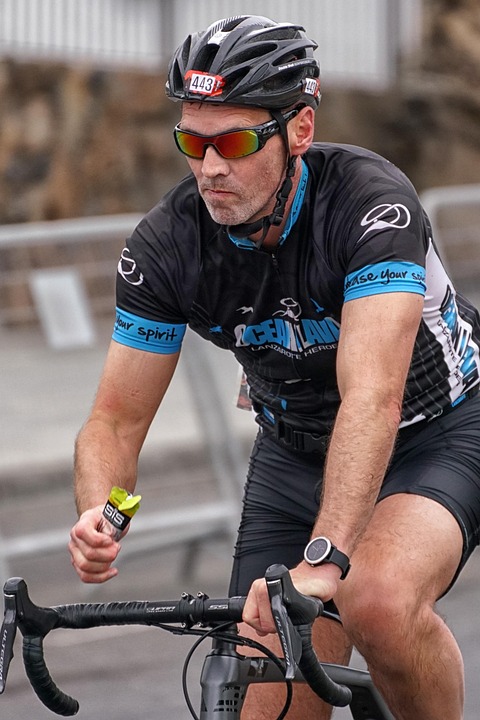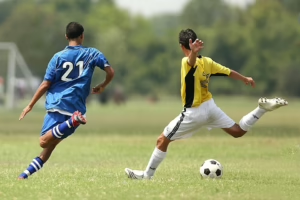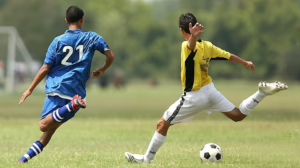Nutrition for Triathletes: Fueling Your Performance
Triathlons are some of the most demanding endurance events, requiring athletes to swim, bike, and run over varied distances. Optimizing performance in such events goes beyond physical training; nutrition plays a crucial role in preparing athletes, fueling their bodies during competitions, and aiding recovery afterward. This comprehensive guide aims to illuminate the principles of sports nutrition tailored for triathletes, with evidence-based recommendations and practical strategies.
Understanding Triathlon Nutrition
The Nutritional Demands of Triathlon
Triathletes engage in prolonged periods of intense physical activity, leading to increased energy expenditure. Depending on the distance—sprint, Olympic, half-Ironman, or Ironman—the energy demands can vary significantly. An athlete’s diet must cater to these varying demands to sustain performance and enhance recovery.
-
Energy Requirements: Triathletes may require anywhere from 3,000 to over 6,000 calories per day, depending on their training volume and intensity. Energy balance is crucial; athletes need to match calorie intake with energy expenditure to maintain weight and proper body composition.
-
Macronutrients: The three primary macronutrients—carbohydrates, proteins, and fats—each serve critical roles:
- Carbohydrates are the body’s primary fuel source, especially during high-intensity activities. They should account for 55-70% of a triathlete’s total caloric intake.
- Proteins are vital for muscle repair and growth, especially post-workout. It’s recommended that athletes consume around 1.2 to 1.7 grams of protein per kilogram of body weight.
- Fats should comprise 20-35% of total calorie intake, providing essential fatty acids and serving as a secondary energy source during prolonged exercises.
-
Micronutrients: Vitamins and minerals are also vital for overall health and performance. Key nutrients for triathletes include:
- Calcium and Vitamin D for bone health.
- Iron for oxygen transport and energy production.
- Antioxidants (like Vitamins C and E) to combat oxidative stress endured during intense training.
Hydration
Hydration is another cornerstone of performance. Dehydration can lead to fatigue, decreased performance, and increased risk of injury. Athletes should formulate hydration strategies that consider fluid loss through sweat and environmental factors.
-
Pre-Workout Hydration: Athletes should start hydrating well before training and competitions, aiming for approximately 16-20 ounces of water or an electrolyte drink two to three hours prior.
-
During the Event: The hydration strategy should include water and electrolyte beverages, with specific guidelines to consume about 16-32 ounces of fluid per hour, depending on sweat rates and climate conditions.
- Post-Workout Hydration: Rehydration should occur as soon as possible post-exercise, with the goal of replacing any fluids and electrolytes lost.
Pre-Race Nutrition Strategies
The days leading up to a race are critical for ensuring optimal energy stores and hydration. Here are strategies to consider:
Carbohydrate Loading
Carbohydrate loading can be beneficial for longer events (particularly those exceeding 90 minutes). This strategy involves tapering training while increasing carbohydrate intake to maximize glycogen stores.
- Duration: Begin the process about three days before the event.
- Consumption: Increase carbohydrate intake to about 70% of daily caloric needs (e.g., focusing on pasta, rice, bread, and fruits).
- Hydration: Maintain diligent hydration to facilitate glycogen storage.
Dinner Before the Race
On the evening before the race, focus on easily digestible meals rich in carbohydrates, moderate in protein, and low in fat. A classic option includes pasta with a mild tomato sauce and a small serving of chicken or turkey.
Breakfast on Race Day
The breakfast on race day is critical for performance. It should be consumed 2-3 hours before the event and be rich in carbohydrates, moderate protein, and low in fat and fiber to minimize digestive distress. Options include oatmeal with fruit, a rice cake with honey, or a banana.
Fueling During the Race
Nutrition during a triathlon is crucial for maintaining energy levels and performance. The fueling strategies can vary based on the distance of each segment and the event overall.
General Guidelines
- Timing: Start fueling after 30-45 minutes of activity to ensure glycogen levels are maintained throughout the race.
- Types of Fuels: Focus on easily digestible carbohydrates, such as gels, chews, sports drinks, and bananas.
- Quantity: Aim for about 30-60 grams of carbohydrates per hour, adjusting as necessary based on individual tolerance and digestive capabilities.
Segment-Specific Strategies
- Swim: Due to its short duration, nutrition during the swim generally isn’t necessary, but ensure optimal hydration pre-race.
- Bike: This segment offers more opportunity to fuel. Use a mix of solids and liquids for convenience—sports drinks or gels are effective here.
- Run: Stick to energy gels and electrolyte tabs, as digestion may be more challenging. Aim for 0.5 to 0.75 grams of carbohydrates per kilogram of body weight during this segment.
Post-Race Recovery Nutrition
Recovery is just as important as preparation and performance nutrition. Immediately after finishing a race, the body enters a recovery phase where replenishing energy stores and repairing muscles is critical.
Recovery Window
A general rule of thumb is to focus on recovery nutrition within 30-60 minutes post-exercise. The goal is to consume a combination of carbohydrates and protein to enhance glycogen resynthesis.
-
Carbohydrates: Aim for a 3:1 ratio of carbohydrates to protein in recovery foods. For every gram of protein consumed, aim to take in three grams of carbohydrates.
- Hydration: Rehydration is critical; focus on fluid replacement and electrolytes lost during the race.
Recovery Meals & Snacks
Some effective recovery meals include:
- A smoothie with fruit, yogurt, and protein powder.
- A turkey sandwich on whole grain bread.
- Greek yogurt with honey and granola.
Additionally, continuing to consume balanced meals rich in all three macronutrients in the following hours is essential for full recovery.
Special Considerations
Individual Factors
Every triathlete is unique, and nutrition plans should reflect individual preferences, tolerances, and specific training regimens. Working with a sports nutritionist can help tailor a strategy that meets personal needs while also considering factors like:
- Body composition goals.
- Allergies and food intolerances.
- Training intensity and schedules.
Seasonal Variations
As training intensity, focus, and environmental conditions fluctuate with seasons, so too should nutrition strategies. Altering carbohydrate needs based on training cycles or climate conditions can yield better performance outcomes.
Conclusion
Nutrition for triathletes is multifaceted, requiring careful consideration, planning, and adjustment. The energy, recovery, and hydration strategies outlined are designed to help triathletes fuel their training, maximize performance, and enhance recovery. Ultimately, a well-executed nutrition plan will ensure that triathletes can train hard, compete effectively, and recover efficiently, paving the way for success across all distances.
By implementing these principles and adapting them to individual needs, triathletes can elevate their performances, achieve personal bests, and enjoy the sport to its fullest.
This article encapsulates foundational aspects of triathlon nutrition. For deeper dives into specific topics or more elaborate dietary plans, consulting a registered dietitian or sports nutritionist is recommended.
References
- Burke, L. M., & Hawley, J. A. (2018). "Carbohydrate supplementation during endurance exercise: carb’s role as a performance enhancer." Journal of Sports Sciences.
- Maughan, R. J., & Burke, L. M. (2012). "Sport Nutrition: A Handbook for Professionals." Human Kinetics.
- Jeukendrup, A. E., & Killer, S. C. (2010). "The Importance of Carbohydrates during Exercise." International Journal of Sports Nutrition and Exercise Metabolism.
Would you like to explore any specific topic further, or need actionable meal plans and fueling strategies detailed?
























Add Comment